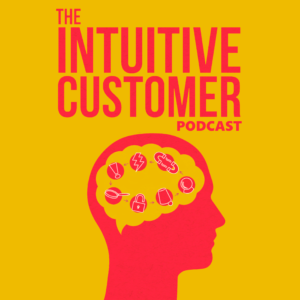Well…It depends!
When I started Beyond Philosophy back in 2002, nobody knew us. I implemented a strategy based on one of Oscar Wilde’s phrases. Wilde said, “There is only one thing in life worse than being talked about, and that is not being talked about.” We put loads of material out there to ensure we were “talked about.”
We discussed marketing efforts in our latest podcast. One of the things that came up was the question, when marketing an idea or organization, is any press good press?
In other words, is it better that people are talking about you even if they are saying negative things rather than not talking about you at all? It is a difficult question. My answer is it depends on how bad it is.
Research even suggests that it depends. Wharton professor Jonah Berger wrote a book based on his research called Contagious, which is about how ideas spread. Berger’s research team looked at The New York Times positive and negative reviews of books and how those review affected sales. They found that there wasn’t a clear answer because, surprisingly, bad reviews didn’t necessarily hurt sales in all cases.
Now, to be clear, it’s better to get a good review than a bad one, and bad reviews can affect sales. For example, if the author was well-known before the review and got a bad report in The New York Times, it hurt sales.
However, if the author was unknown and the review was of their first major book, the existence of The New York Times review, whether it was positive or negative, boosted sales. Moreover, it was substantial. They found that sales went up by 40 percent.
So, the idea that any press is good press is valid. Not always, of course, but if you were unknown, it might do better for you to get negative press than to get none at all.
If You Want Attention, You Must Play the Game
In marketing Beyond Philosophy, I’ve been interviewed on TV and radio many times. I have learned that they want two things: an opinion and a bit of controversy.
They like a good argument and differing views, too. When you watch the news in England, the news producers book guests that have conflicting views. The interviewer throws the conflict in the middle of the room and then sits back and watches what happens.
Also, when I’ve been interviewed alone on TV or radio, the journalists take up the contrary view to what I am saying. The interviewer doesn’t sit there and agree with you; they challenge you and give you nasty, challenging questions. I’ve learned not to get upset about it. The journalist is doing his or her job. You have to say something like, “Sure, it might be your opinion, but I think…”
If you want to get your name out there, you have to have an opinion. Otherwise, why would anybody give you the airtime? You also have to be controversial. Saying the same thing as everybody else is not going to get in The New York Times.
At Beyond Philosophy, we have always tried to be at the cutting edge of Customer Experience, pushing the boundaries. In my first book, I wrote about customers’ emotions and the emotional experience. Back then, everyone was going mad about the idea, and I debated with people a lot. However, by pushing the subject in the early days, we established ourselves as thought leaders.
Therefore, if you want people to be talking about you and consider you a thought leader, you need to develop your thoughts. It’s not about retweeting other people. That doesn’t say you have originality; it means you echo somebody else’s idea.
Do You Know What You Need from Attention?
We talked a few weeks ago about communication. As an organization, you need to determine what you need from attention. In other words, what is your goal?
Sometimes the goal is to generate attention. For example, the unknown author wants attention. Furthermore, having The New York Times review is a signal that your book is quality enough that they should bother with an appraisal. Therefore, even a negative report shows something—like that your book exists. So, if your point is attention, then a good review is not necessary. All that is important is that there is a net benefit to you.
Recently, environmental groups have been blocking traffic in London. So, you could argue that’s terrible attention for all the people who need to get around in London. However, you could also see how from an environmentalist’s point of view, the focus raised on environmental concerns by the complaints about stopping traffic is excellent attention. It depends on your point of view.
It also means that from a Customer Experience perspective, you should consider who your target audience is and how you associate with them. Another could welcome your controversial statement that is perceived as unfavorable by one group. You should know whether that welcoming group is your target.
Getting attention is a subject that comes back to knowing your customer and understanding what is driving their decision making. As an organization, you need your marketing efforts to address these areas.
To summarize where we are thus far:
If you need to draw attention to the fact that you exist, bad press is good press.
If you are well-established and any notice is not the goal, then the lousy press is still bad.
On Feeding the Trolls
I post a lot of articles, and sometimes I attract trolls. For those of you who don’t know, trolls are people that start fights on the internet, usually through nasty comments.
I posted not long ago about restaurant experiences, things I liked, and things I didn’t. One of my points of contention was when waiters couldn’t remember who ordered what when returning to the table with the food. I commented on how it wasn’t rocket science.
The complaints poured in. Many of the commentators were people who had waited tables. They said I was attacking underpaid and under-appreciated people. I defended my position by declaring it was a management problem. If people were too busy to remember who ordered what, then management needed to address the issue. Management should relieve the wait staff of some of their duties or training them in customer service.
This argument went on for weeks.
Now, as I mentioned, I like controversy. So, I started tweeting about the argument. I baited more comments with tweets that said, “Do you think this is a management issue or just lazy people?” and other stuff like that. One of my goals was to communicate it was a poor contributor to the restaurant experience and that it was a management issue, not the wait staff. However, another one of my goals was to keep up the attention by generating more discussion. To do so, I baited the trolls.
If you were to find your organization in a similar situation, where your content was hitting a nerve and generating some negative feedback, you should consider the positives. Are those comments as bad news? Could you use it to create more debate?
Using Attention to Improve Your CX
Is any press good press? The answer is only sometimes and for some organizations in some situations.
The long and the short of this discussion is that attention can be good or bad, and the determining factor is whether it achieves your goal. So, it is crucial that in your marketing communications, you know what your goals are. If your goals are attention, then realize that controversy and even negative press can do you good. If you are pursuing persuasion and attractiveness, then the negative press will be damaging.
Determining your goals requires you to know who your customer is and how they make decisions. Also, you need to have specific organizational goals and plan for them.
If you are trying to establish yourself, then one of the ways of doing that is by being controversial because that gets people noticed. Moreover, you have to have an opinion. If your idea is the same as everybody else’s opinion, then it’s just going to get lost in the noise.
There are some areas where you don’t want negative press. However, being controversial and having an opinion that generates discussion is an essential aspect of getting attention.
Finally, remember Oscar Wilde’s concept that it is better to have people talking bad about you then not talking about you at all. My only caveat is to take it easy on the waiters. You may discover that your ratio for meals ending up in your lap goes up if you talk too bad about them.
To hear more about our discussion on “Is Any Attention Good Attention?” in more detail, listen to the complete podcast here.

Colin Shaw, global leader in Customer Experience and conference speaker, can inform and entertain your next conference audience. Colin helps audience understand how an organization can improve their Customer Experience and become a customer-centric organization. His interactive style and down-to-earth attitude engages audiences with humor and practical examples. To learn more about booking Colin as your conference speaker, please click here.

Hear the rest of the conversation on Is Any Attention Good Attention? on The Intuitive Customer Podcast. These informative podcasts are designed to expand on the psychological ideas behind understanding customer behavior. To listen in, please click here.
If you enjoyed this post, you might be interested in the following blogs and podcasts:
CUSTOMER SATISFACTION IS DECLINING IN THE UK. IS THE US NEXT?
STEREOTYPES: THE HARD-WIRED WAY OUR BRAINS MAKE DECISIONS
THE 5 ESSENTIAL PRACTICES FOR YOUR CUSTOMER EXPERIENCE
Colin Shaw is the founder and CEO of Beyond Philosophy, one of the world’s leading Customer experience consultancy & training organizations. Colin is an international author of six bestselling books and an engaging keynote speaker.
Follow Colin Shaw on Twitter @ColinShaw_CX

